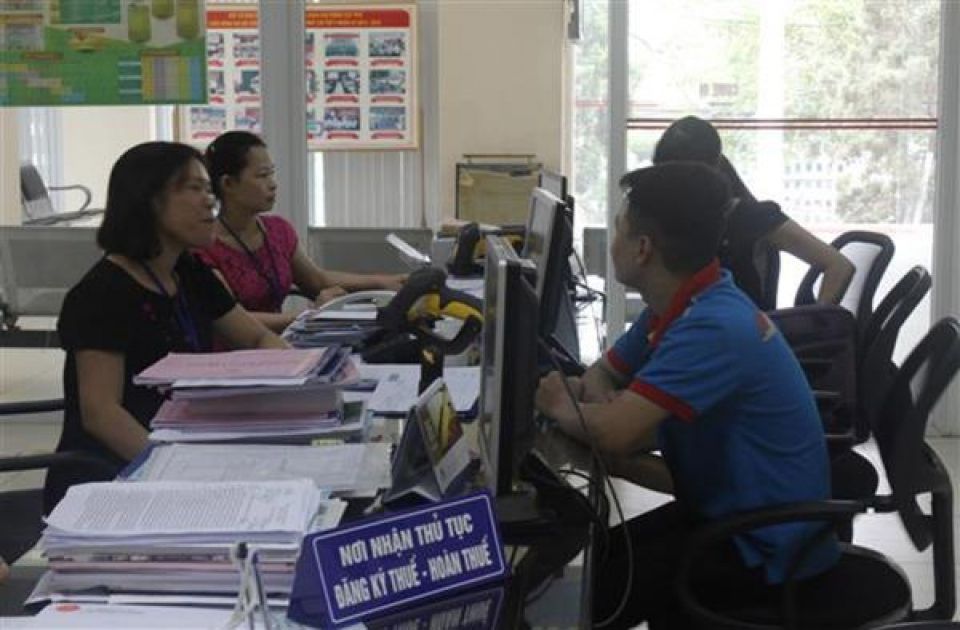Necessary to expand electronic invoices
It is expected that from 2018 to 2020, the Taxation will expand the electronic invoices for all taxpayers including businesses and individuals. With nearly 100% of businesses now applying online tax declaration, it will be a chance for the Taxation expand electronic invoices.

Control of turnover and anti-tax fraud
According to the General Department of Taxation, till now, there have been 656 enterprises implementing electronic invoices with the number of electronic invoices of about 277.98 million invoices. Basically, all provinces and cities across the country have businesses using electronic invoices, but mainly in two major cities: Hanoi and Ho Chi Minh City. Most of the large enterprises operate in the field of trade and services with developed information technology infrastructure and less risk.
The use of electronic invoices brings many benefits, which is approved by customers, saving time and costs for businesses, thereby, to stepping up the application of information technology in business management, raising the efficiency of production and business and increasing the competitiveness of enterprises. For customers, the habit of using paper invoices has gradually changed. The use of electronic invoices helps customers feel convenient in payment, and they can access the website of the seller to view and download invoices when they need. Thus, customers do not have to store or preserve bills, avoiding risks and saving costs.
In fact, from 2014, the Ministry of Finance has encouraged some enterprises to use electronic invoices instead of paper invoices and comply with the Tax Law such as: The Vietnam Electricity (EVN), the Vietnam Posts and Telecommunications Group, the Vietnam Military Telecom Corporation (Viettel) and Vietnam Airlines Corporation, etc.
At a higher level, in order to prevent unauthorized use and sale of counterfeit invoices, from mid-2015, on the basis of international practice on electronic invoices with tax codes, the Ministry of Finance has studied the construction of the electronic invoices code system of tax authorities. In order to make electronic invoices with the tax code, before being sent to the buyer, the electronic invoices are transmitted to the electronic system of the tax office with an electronic code. Through this electronic code, the tax authorities will have the contents of the bill. This is also the basic solution to control the turnover of enterprises for anti-fraud and anti-tax evasion. In fact, for VAT, transactions of 200,000 VND or more, individuals and businesses have to issue invoices to the buyer (VAT 10%). The habit of not receiving the invoice of the buyer has accidentally assisted businesses and individuals to evade taxes.
As a result, after the pilot electronic invoices with the tax office code in Hanoi and Ho Chi Minh City, till now, there have been 315 enterprises registering with the tax office to issue invoices with the tax code (Hanoi has 201 enterprises and HCM City has 114 enterprises). By the end of 2nd December 2016, the total number of issued and authenticated invoices reached 2.449.548 invoices, with the total amount of 18,934 billion vnd and total verified tax of 880.8 billion vnd.
Expanding from 2018
In order to overcome the existing shortcomings of the bill, the Ministry of Finance has just finalized the draft Decree replacing Government Decree No. 51/2010 / ND-CP of 14th May 2010 and Government Decree No. 04/2014 / ND- CP of 17thJanuary 2014 regulating invoices for selling goods and providing services. Accordingly, the Ministry of Finance has put out a roadmap to make electronic invoices and electronic invoices with the code of the tax authorities. In 2015, the pilot application of tax invoices code with the tax authorities was applied for 200 enterprises in Hanoi and Ho Chi Minh City. From 2017 to 2018, the General Department of Taxation will continue to expand the pilot to 12,000 businesses in Ho Chi Minh City, Hanoi and 8 other provinces and cities, including electronic tax invoices and pilot information connection with enterprises self-deploying electronic invoices.
It is expected that from 2018 to 2020, the electronic bills will be extended to all taxpayers including businesses and individuals. Also, implementing collection from cash registers, sales software of restaurants, supermarkets and hotels.
The above roadmap is reasonable because, in fact, the Taxation has promoted tax declaration and payment by linking the tax system with the tax service providers through the Internet. Out of the 581,875 businesses currently operating, there are 576,056 enterprises (accounting for 99%) filing electronically and 565.099 enterprises (accounting for 97%) registering electronic tax payments at commercial banks.
In preparation for this roadmap, in the coming time, the General Department of Taxation will continue to coordinate with relevant units to hire information technology services with service providers to expand the application of electronic invoices with authentication code of the Tax Authority. According to Mr. Nguyen Van Phung, the Director of the Department of Large Enterprises, under the General Department of Taxation: “In the first pilot phase, electronic invoices have received the support of many businesses operating in the fields of Aviation, Banking, Electricity and Telecommunications. Currently, the tax offices have mechanisms to encourage enterprises to use in a long-term”. Mr. Phung also said that to a certain stage of development, the compulsory use of electronic invoices instead of the use of paper invoices was inevitable.
Source: customsnews.vn
